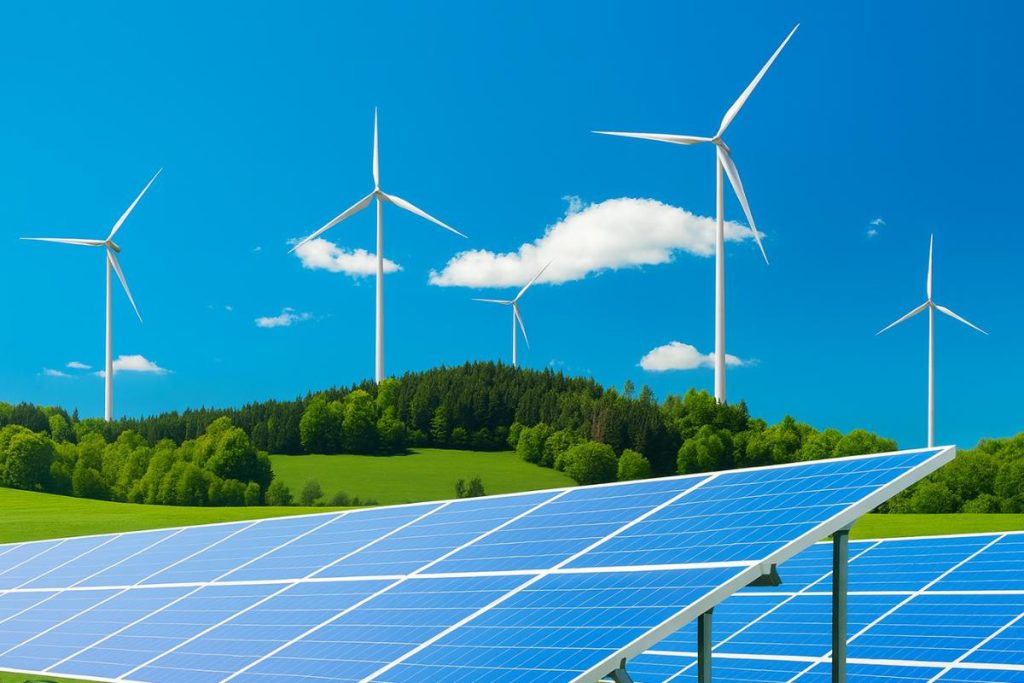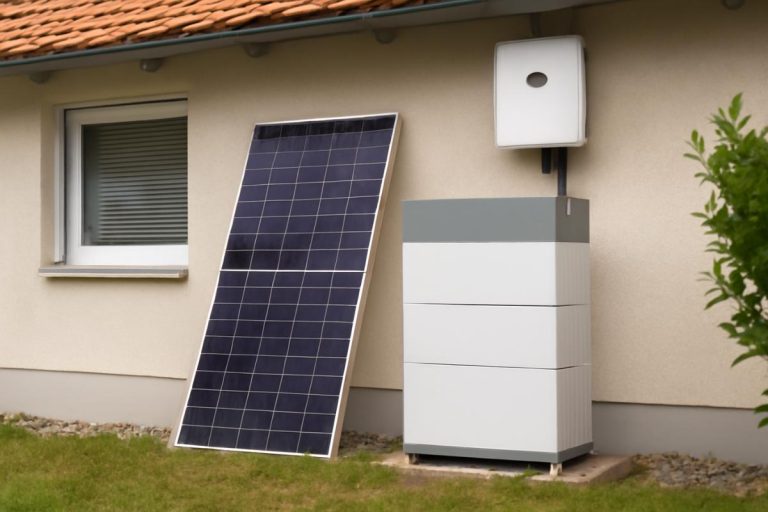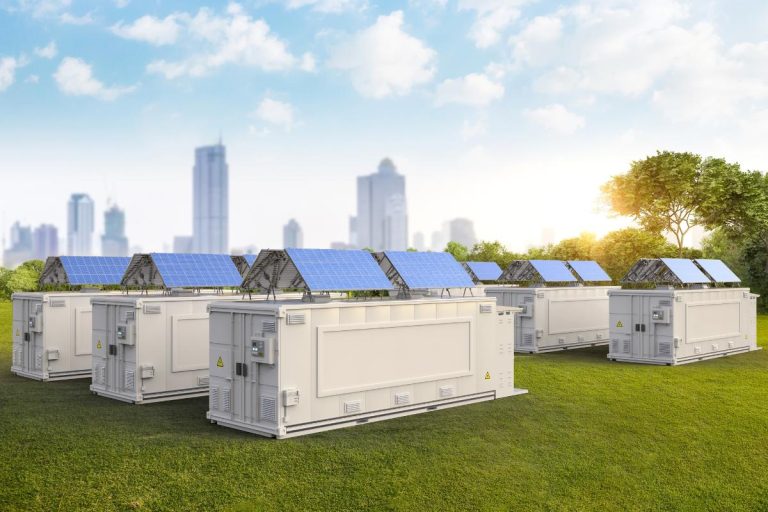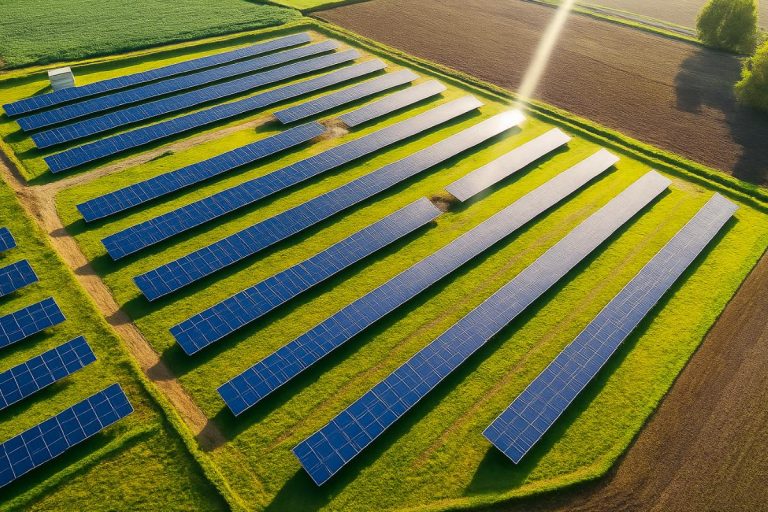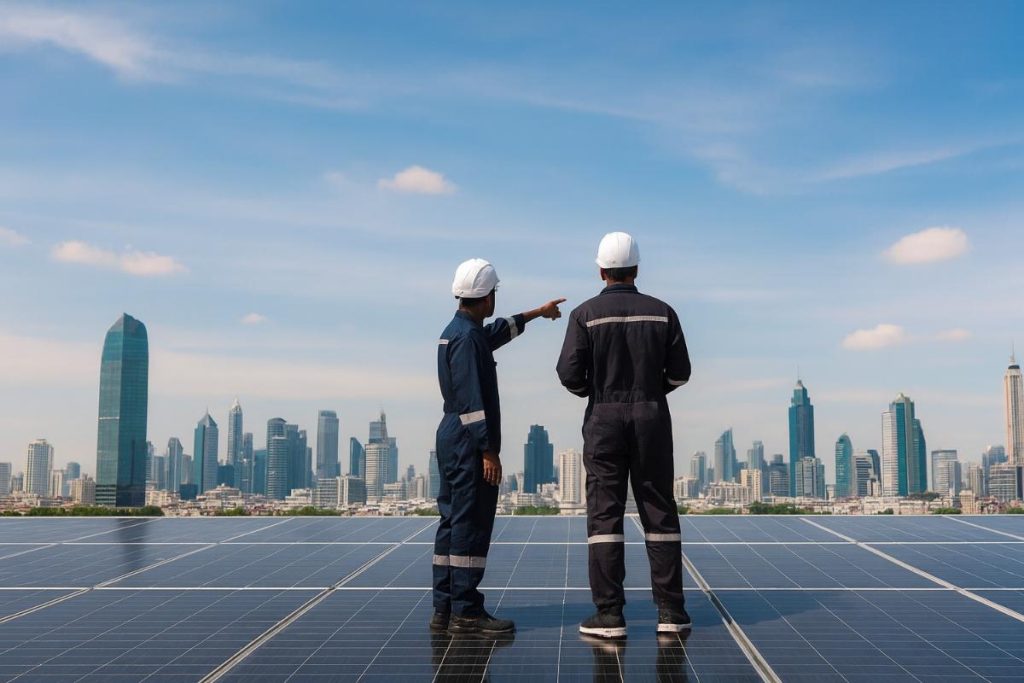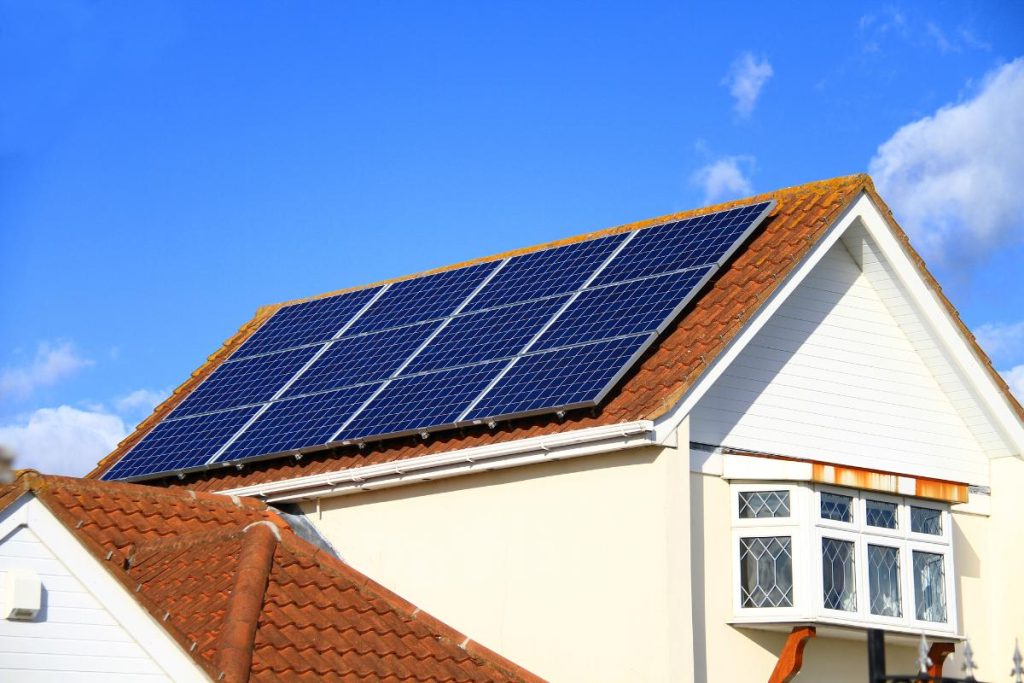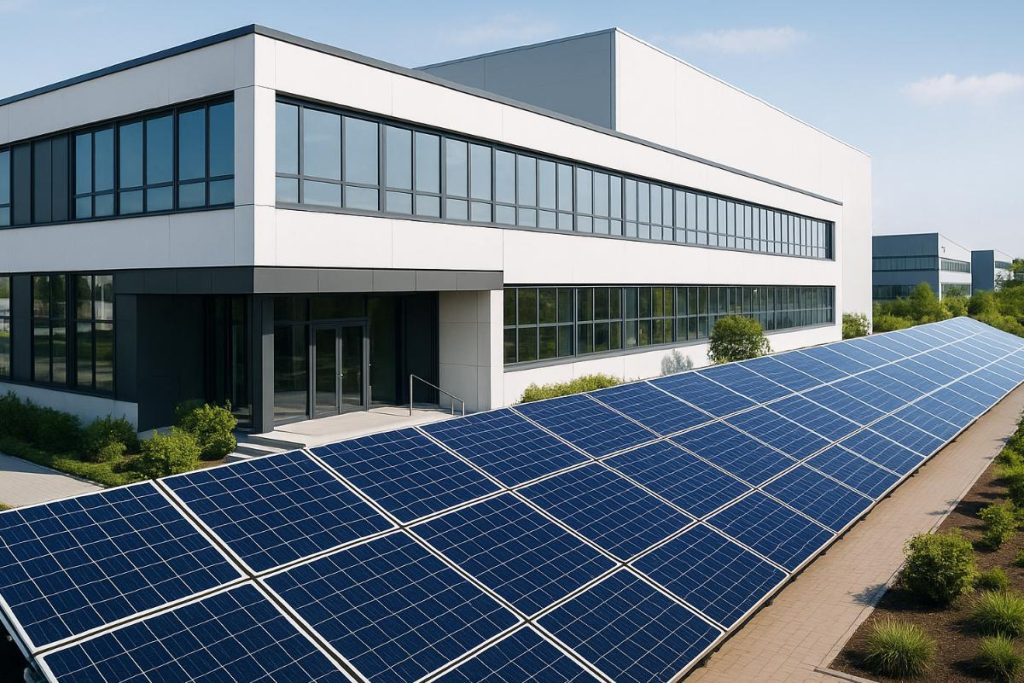The search for more sustainable forms of energy is gaining momentum around the world. Faced with climate change, pollution and the scarcity of natural resources, the clean energy is emerging as a necessary and promising alternative. But what is clean energy anyway? What are its types, advantages and challenges? And how can it transform our future?
In this article, we'll explore this topic in a simple and straightforward way.
What is clean energy
Clean energy is energy that has little or no negative impact on the environment. Unlike fossil fuels such as coal, oil and natural gas, which release polluting gases and accelerate global warming, clean energy is generated from renewable sources such as the sun, wind and water.
These sources are considered inexhaustible on a human time scale and help preserve the planet for generations to come. In addition, this type of energy is also known as "green energy" or "renewable energy".
How did the concept come about?
The concept of clean energy began to gain prominence in the 1970s, with the oil crisis and increased environmental concern. Over the years, the debate on sustainability and the effects of climate change have led governments, companies and society to start looking for alternative, less polluting sources.
In recent years, as technology has advanced and costs have fallen, it has become more accessible and viable, gaining ground all over the world.
Main sources of clean energy
There are various ways of producing clean energy. Some are more developed, while others are still emerging. Below, we highlight the main sources:
Solar energy
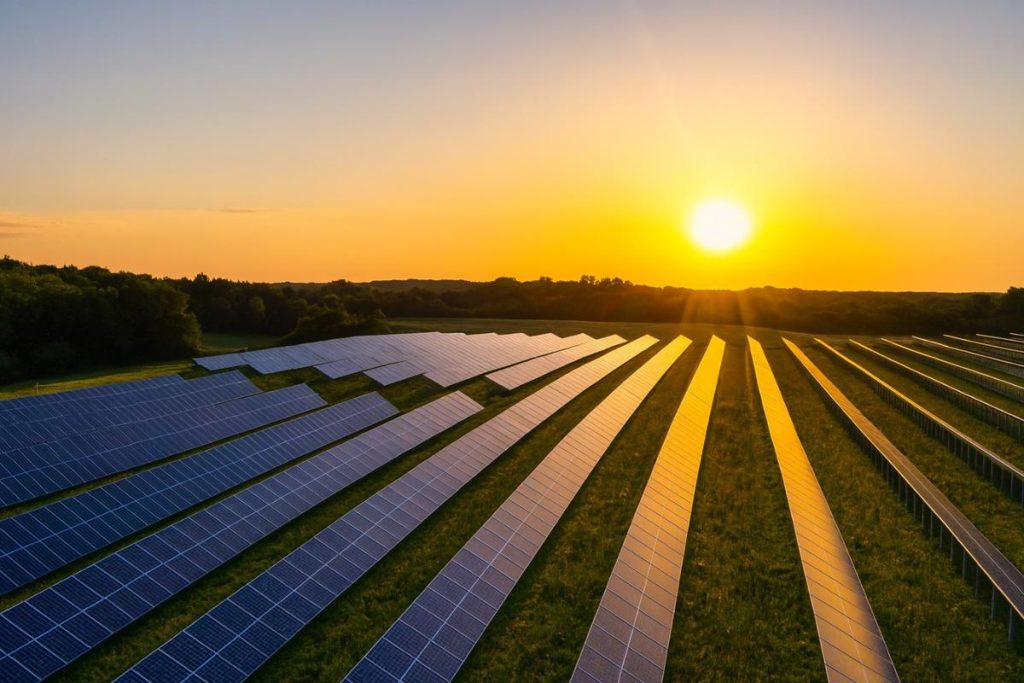
A solar energy is one of the most promising and accessible sources of clean energy. It is generated from sunlight using photovoltaic solar panels that transform solar radiation into electricity.
This technology can be used in homes, businesses and rural areas. Brazil, as a country with high solar incidence throughout the year, has enormous potential for using this source.
Among the main advantages of solar energy are:
1. An abundant and free source
The sun is an inexhaustible source of energy. The amount of solar energy that hits the Earth in one hour is enough to supply the entire world's energy needs for a year.
Understand more how solar energy works!
2. Low environmental impact
Solar energy is one of the cleanest energy sources available. Unlike fossil fuels, it produces no greenhouse gas emissions, helping to mitigate climate change. In addition, it does not generate polluting waste and does not contaminate soil or water.
3. Reduction in electricity bills
Installing solar panels allows you to generate your own electricity, significantly reducing your dependence on the electricity grid and, consequently, your electricity bill. In some cases, it is even possible to zero out the electricity bill or receive credits from the energy concessionaire.
See how to save on your electricity bill.
4. Property valuation
Properties with installed solar energy systems tend to be more valuable on the real estate market. The savings on electricity bills and the sustainability of the property are attractive to potential buyers and tenants.
6. Job creation
The solar energy sector is one of the fastest growing in the world, generating jobs in various areas, from equipment manufacturing to system installation and maintenance.
7. Energy independence
This type of energy contributes to energy independence by reducing dependence on imported energy sources that are subject to price fluctuations.
8. Versatility
Solar energy can be used in a variety of applications, from generating electricity for homes and businesses to pumping water, heating water and public lighting.
Other emerging sources

In addition to solar energy, other clean energy sources are also gaining ground:
- Wind power: uses the power of the wind to move turbines and generate electricity.
- Hydroelectric power: harnesses the power of river water to move turbines in power stations.
- Biomass: uses organic waste, such as wood scraps and sugarcane bagasse, to generate heat or electricity.
- Nuclear energy: although controversial, it is considered clean because it does not emit greenhouse gases during energy generation.
Advantages of clean energy
The large-scale adoption of clean energy has a number of notable benefits, both for the environment and for society as a whole. Among the main advantages are:
Reducing pollution
Energy from renewable sources contributes significantly to reducing the emission of polluting gases such as sulphur dioxide, nitrogen oxides and particulate matter, which are responsible for public health problems such as respiratory and cardiovascular diseases. In addition, lower emissions of greenhouse gases, such as carbon dioxide, help to combat climate change and its negative impacts, such as rising global temperatures, melting glaciers and rising sea levels.
Preservation of natural resources
Renewable energy sources such as solar, wind, water and biomass are considered inexhaustible, unlike fossil fuels such as oil, coal and natural gas, which are finite and take millions of years to form. The use of clean energy prevents the depletion of these natural resources, guaranteeing their availability for future generations.
Long-term savings
Although installing clean energy systems can require a considerable initial investment, the costs of operation and maintenance are relatively low, especially when compared to the costs of producing energy from fossil fuels, which are subject to price fluctuations and geopolitical instability. It can provide long-term savings for both consumers and governments.
Job creation
The renewable energy sector is one of the fastest growing in the world, generating millions of direct and indirect jobs in areas such as research and development, equipment manufacturing, system installation and maintenance, consultancy and project management. The transition to a low-carbon economy can boost economic and social development, creating new job and income opportunities.
Energy security
The diversification of energy matrixThe inclusion of renewable energy sources reduces dependence on imported fossil fuels, which can be affected by international conflicts, trade embargoes and economic crises. Clean energy contributes to energy security by guaranteeing a stable and reliable energy supply.
Technological development
Investment in clean energy stimulates research and the development of new technologies, which can be applied in various areas, such as industry, transportation, construction and agriculture. Technological innovation can increase energy efficiency, reduce production costs and improve people's quality of life.
Improved quality of life
Clean energy contributes to improving people's quality of life by providing a healthier environment, with cleaner air and water, less noise and greater thermal comfort. It can also promote social inclusion by bringing electricity to remote and underserved communities.
Challenges and limitations
Despite the advantages, clean energy also faces some challenges:
- Initial cost: installing systems such as solar can require a significant investment;
- Dependence on natural factors: sun, wind and water are not constant in all regions and at all times of the year;
- Energy storage: there are still limitations in batteries and efficient storage systems;
- Infrastructure: in some places, the electricity grid is not prepared to receive decentralized energy.
Despite these limitations, technological advances and public and private incentives have made these solutions increasingly accessible.
Clean energy in Brazil and around the world
Brazil is one of the countries with the greatest potential for using renewable energies. Currently, a large part of Brazil's electricity comes from clean sources, mainly hydroelectric plants. However, the country has also invested heavily in solar and wind energy.
At a global level, countries like Germany, China and the United States are leading the energy transition. Europe, for example, has set ambitious targets to reduce carbon emissions and increase the use of renewable sources in the coming years.
How to implement clean energy?
Adopting clean energy can be easier than it sounds and has significant benefits for both the environment and the economy. There are many ways to incorporate sustainable practices into our lives and contribute to the energy transition.
Solutions for homes and businesses
- Solar panels: installing solar panels on roofs and facades allows electricity to be generated from sunlight, reducing dependence on the electricity grid and cutting costs in the long term.
- Solar water heating: solar heating systems use the sun's energy to heat water, reducing gas or electricity consumption and providing savings and comfort.
- Energy efficiency: exchanging old appliances for more efficient models, the conscious use of lighting and the adoption of good consumption practices can significantly reduce energy expenditure.
- Sustainable buildings: the use of materials and construction techniques that prioritize energy efficiency, thermal comfort and natural lighting contributes to reducing energy consumption and improving quality of life.
Solutions for mobility
- Electric vehicles: replacing fossil fuel cars with electric vehicles reduces pollutant emissions and contributes to improving air quality in cities.
- Bicycles and public transport: using bicycles for short journeys and investing in efficient and sustainable public transport are alternatives that reduce traffic and pollution.
Solutions for industry and commerce
- Renewable energy sources: the use of renewable energy sources, such as solar and wind power, in industrial and commercial processes reduces dependence on fossil fuels and reduces environmental impact.
- Waste management: implementing waste management practices, such as recycling and reusing materials, helps to save resources and reduce pollution.
The role of government and society
Establishing public policies that encourage the production and consumption of clean energy, such as subsidies and tax exemptions, is fundamental to speeding up the energy transition. In addition, investment in research and development of renewable energy technologies is essential for creating innovative and affordable solutions.
On the other hand, raising public awareness of the importance of clean energy and education in sustainable consumption are fundamental to changing habits and building a more sustainable future.
Meet BYD Energy - clean solar energy solutions
BYD's vision is in line with what humanity needs: to change human dependence on non-renewable energy to clean energy sources.
We offer complete photovoltaic energy solutions for different consumption profiles. Our systems can be applied to residential, commercial, industrial, rural, investor-owned and utility projects, among others.
With cutting-edge technology and a commitment to sustainability, BYD has become a benchmark in the solar energy market in Brazil and around the world. Our solar panels guarantee high efficiency, durability and savings, helping consumers to produce their own energy in a clean and conscious way.
If you want to be part of the change and contribute to a more sustainable future, solar energy from BYD could be the first step.

